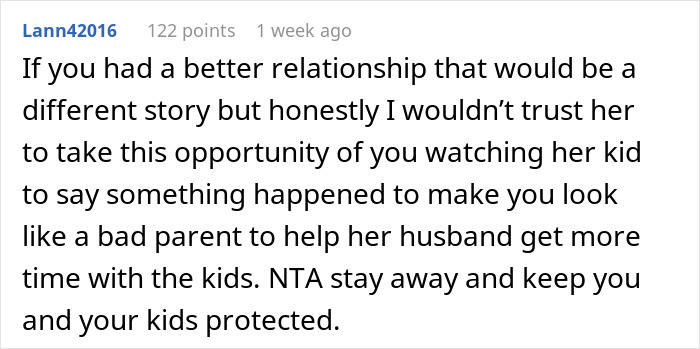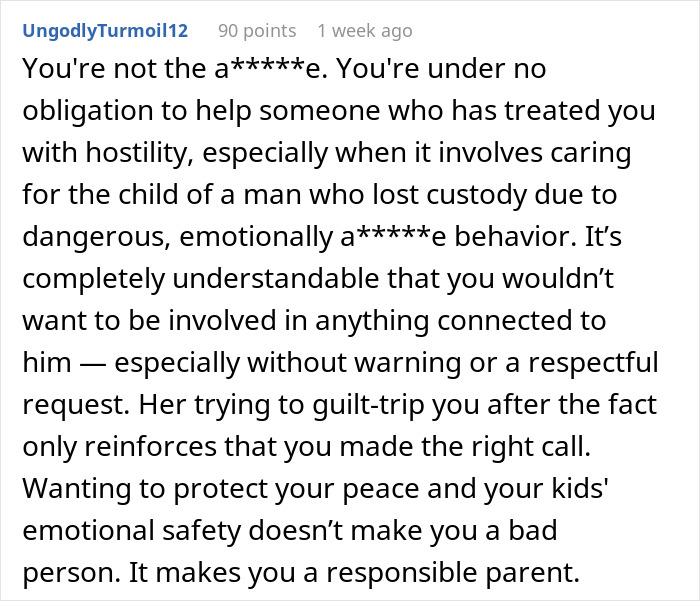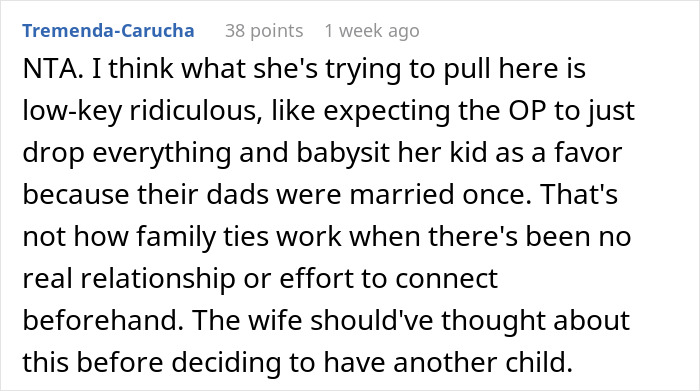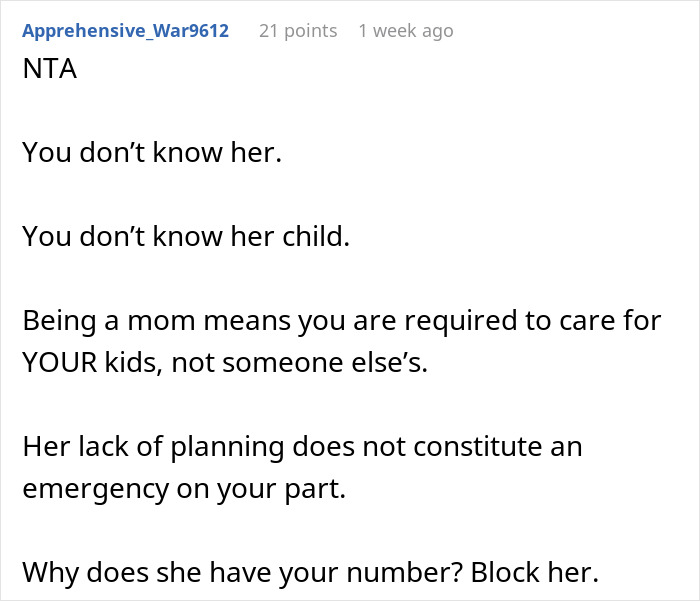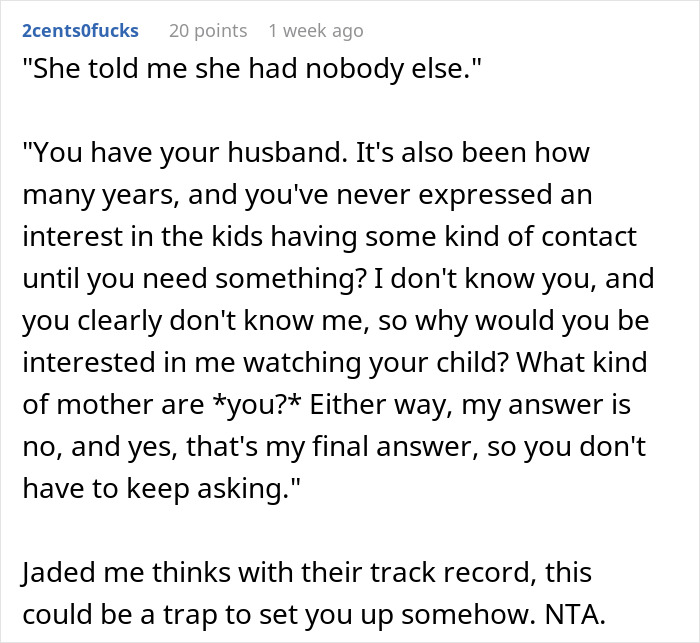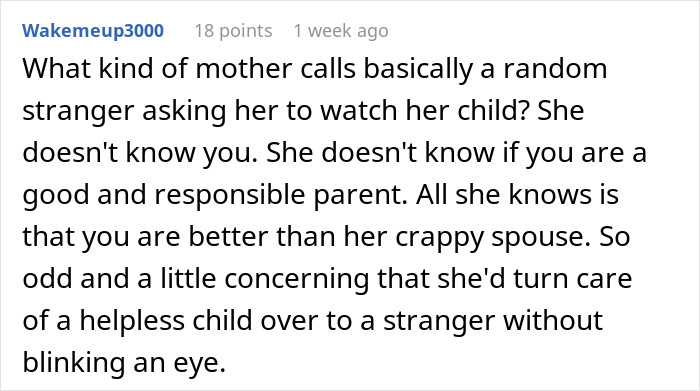Sharing custody of kids with an ex comes with a lot of emotional baggage, as well as often very literal baggage. However, in all those responsibilities, it’s normally just assumed that the actual parents of the kids would be the ones looking after them day to day. But some folks seem to think that they really are entitled to make demands of almost anyone.
A woman shared her surprise when she was asked to babysit by none other than her ex’s current wife. Upon refusal, she was just as surprised to have this woman berate her. We reached out to her via private message and will update the article when she gets back to her.
Most people have little to no reason to interact with their ex’s partners
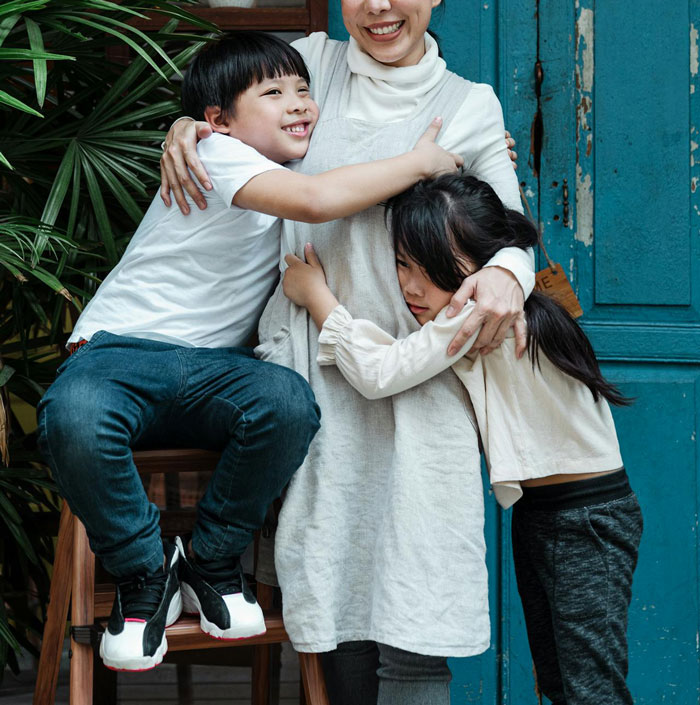
Image credits: Ketut Subiyanto / Pexels (not the actual photo)
So one woman was caught off guard when her ex’s wife wanted her to babysit
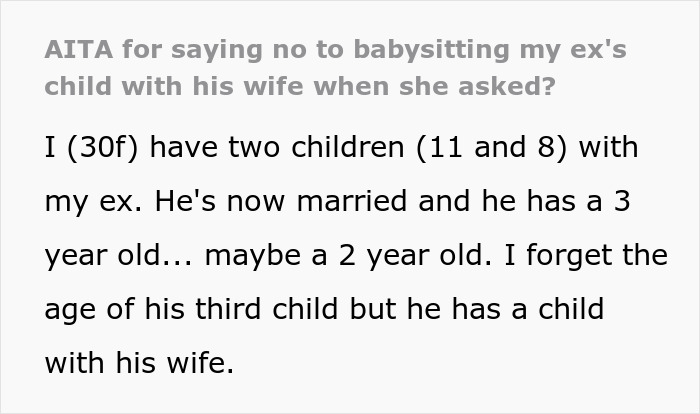
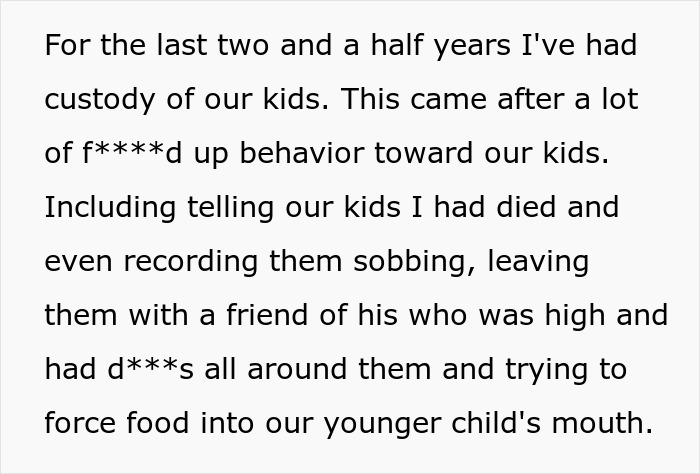
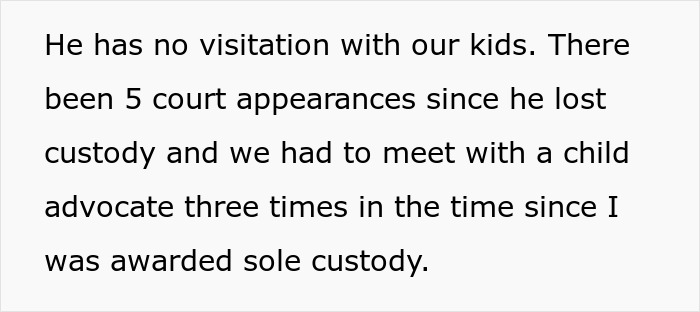
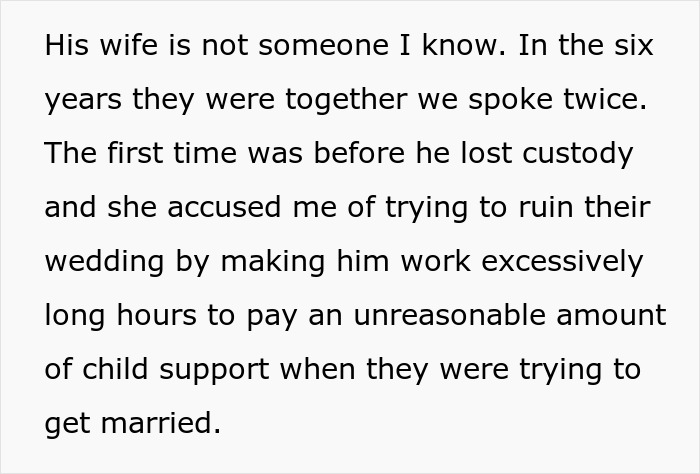

Image credits: Getty Images / Unsplash (not the actual photo)
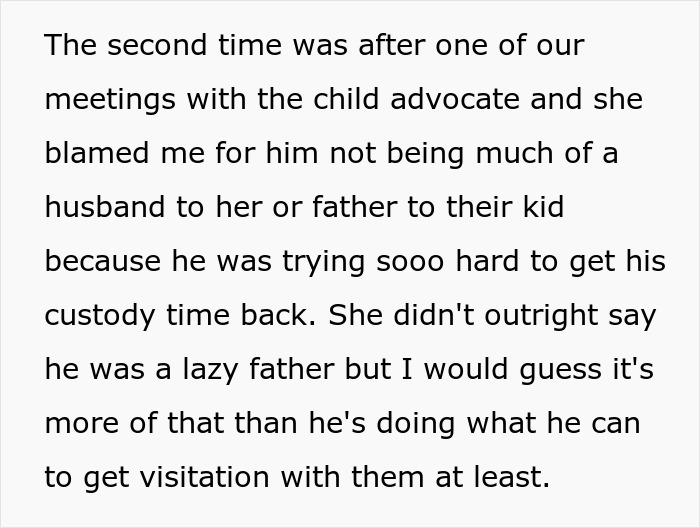
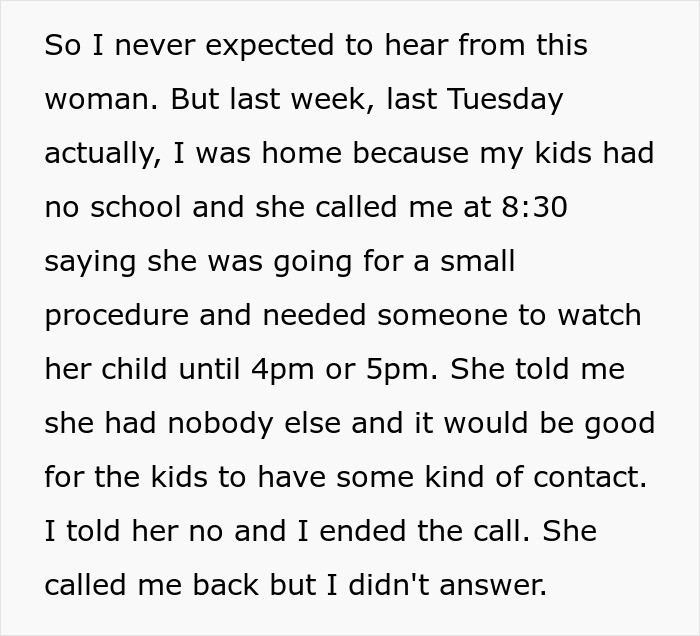
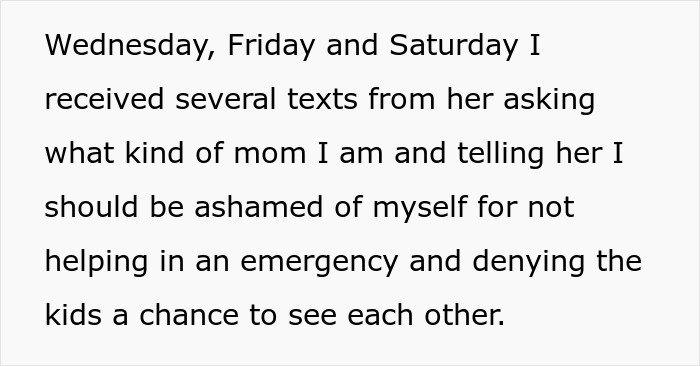

Image credits: Rozzomommo9009

Image credits: Ron Lach / Pexels (not the actual photo)
Some people think they can ask for anything
The core argument of the ex’s wife seems to be that because their children are distantly related, this woman is now, somehow, obligated to help out. This is by no means a reasonable expectation in any way, given the fact that these women have not met. Unfortunately, we don’t have a lot of information on the ex’s wife, so we’re forced to speculate on how this could have happened in the first place.
Sheer convenience is one of the driving forces behind this expectation. When circumstances shift at the last minute, work calls, appointments take longer, emergencies arise, it’s easy to default to the most available grown-up in the kid’s life. If your ex is still around or has a relationship with the kids, it’s an obvious move to ask him or her to take on the responsibility. But convenience cannot substitute for explicit agreement; it covertly shifts parental responsibility onto someone who may no longer possess the emotional resources, legal status, or even desire to comply.
What tends to get overlooked is that post-breakup life generally involves a role shift. The ex-partner may have progressed, learned a new trade, forged new friendships, or even started a new family. But they’re often pulled back into an outdated role for no better reason than convenience. Just because the person used to pick the kids up from school or pack their lunches a few years ago doesn’t mean they’re on standby. Time has moved on and situations have altered. Requiring them to press “pause” on their own life to plug a hole in another person’s plan ignores that development.
Entitlement is also present in this dynamic. In blended or split families, some partners feel that co-parents or even former-step-parents have a permanent obligation of care, regardless of what has transpired. They can cry, “You raised them for years, this is a small favor,” as if duty and affection are lifetime bargains. But obligations of parenting are negotiated through custody agreements and individual boundaries, not residual good will. Valuing an ex’s time, energy, or space as a common resource devalues their independence and right to move on.

Image credits: Edward Jenner / Pexels (not the actual photo)
This sort of behavior really undermines any remaining family ties
Then there is emotional manipulation. Obvious or insidious, guilt-tripping the other into volunteering can do serious damage. This tactic equips previous cooperation as a weapon and blackmails with the ex-partner’s fondness for the children. The result? An implied trap where a “no” is equated with abandonment, despite it being merely about drawing a line.
This emotional burden can be especially complicated if the ex has built a strong, ongoing relationship with the children. It is difficult to say no to a demand when a child is involved, particularly when that child sees you as a safe, familiar adult. But it doesn’t mean the ex must be on call like an off-duty babysitter. Love does not override mutual respect and reasonable boundaries.
Also, relying on an ex for unplanned babysitting can create resentment across the board. Children are sensitive; they catch a vibe, especially if the grown-ups around them are stressed, frustrated, or resistant. Present partners may feel resentful if they feel like they’re sharing their home or relationship with an old ghost. Meanwhile, the ex may start to step back entirely, happy to simply stay out of it instead of tiptoeing through a field of things they never committed to in the first place.
The healthiest way to do it is assertive and respectful: establish joint childcare schedules, seek out other reliable sitters, and have open dialogue regarding responsibilities and boundaries. If an ex wants to be involved, that should be by choice, mutual choice, that is, not assumption, obligation, or guilt. Ultimately, co-parenting (or post-co-parenting, in this case) works best when it’s handled as a joint process with agreement from all parties. A respect for boundaries, time, and emotional labor will go much farther to keep drama at bay and maintain the health of the children. No one, ex or not, has to feel as though they’re being called up for duty merely because they used to hold the title of “mom” or “dad.”
Some folks wanted more details


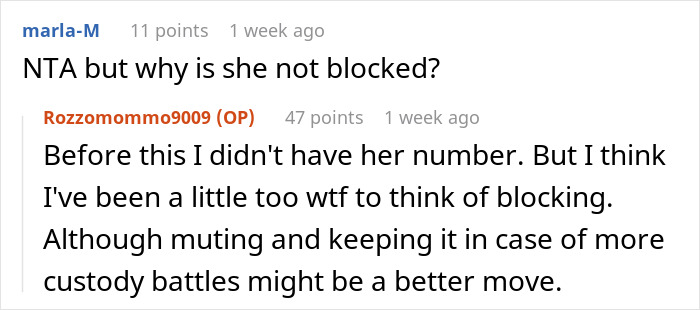

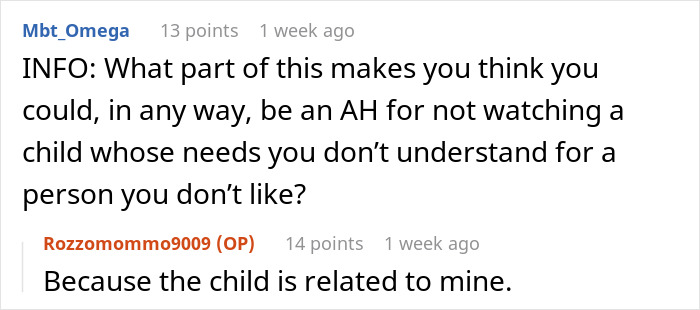
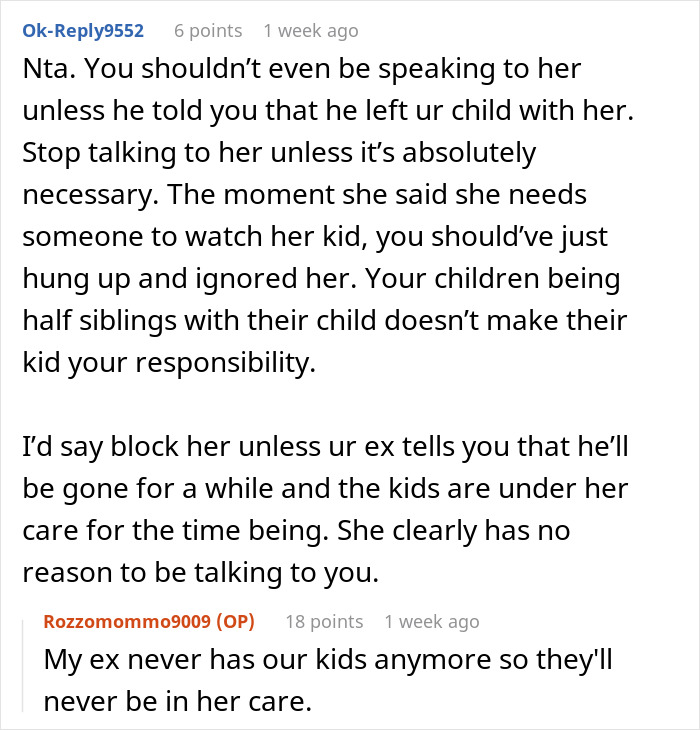
Others thought the ex’s wife was up to something





